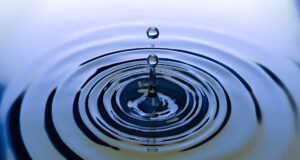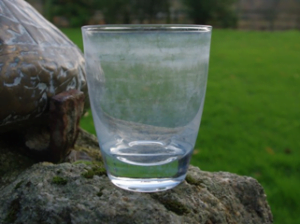Hey, today it’s time for a little educational chat. You often hear about the so-called “hard water“. If you believe advertising, such water is the greatest danger to washing machines.
Hard water – “what does it come with”?

Scientifically speaking, water hardness is a property resulting from the presence of salts of calcium, magnesium and other metals. To be more precise, it results from concentration of the above in water.
There are two types of hardness:
- Transient (or carbonate) that comes specifically from calcium and magnesium carbonates and bicarbonates. These compounds are precipitated from the water when it is boiled, taking the form of sediment.
- Permanent (or non-carbonate) that results from the presence in water of sulfates, nitrates, chlorides and other soluble salts, mainly calcium and magnesium. These compounds remain in the water even after boiling.
The overall hardness of water is the sum of the above two types of hardness.
Why can hard water be harmful?
Water hardness affects its surface tension. The higher the surface tension, the harder it becomes to moisture all kinds of surfaces. Therefore, it’s harder to clean. If you have hard water, you have to use more soap and detergent. This is not only bad for nature and your wallet, but also for your health in the long run. What’s more, the sediment that precipitates when boiling hard water turns into scale, damaging washing machines and other home appliances.

How to measure hardness?
To determine the hardness of water we use several different scales: German degrees (°n, °d or °dH), French degrees (°f or °fH), English degrees (°e), the American scale (ppm – part per million), millivals per liter (mval/l) and millimoles per liter (mmol/l). These scales are interchangeable. There are calculators for converting units of one scale to units of another.
On the German scale, which I refer to in this article, water hardness is as follows:
- Very soft water : less than 5.6
- Soft water: 5.6 – 11.2
- Medium-hard water : 11.2 – 19.6
- Hard water: 19,6 – 30,8
- Very hard water: greater than 30.8
The typical hardness of domestic (tap) water is about 10 °n.
Do you have hard water?
In 2010, Brita conducted a study on water in Polish homes. About 500 homes in 10 different cities were surveyed. What did they find? Well, by far the hardest water have residents of Gdansk – 22.48 °n. Then “long, long nothing” and in the ranking appear three more cities with medium-hard water – Lublin (15.5), Poznan (14.42) and Wroclaw (14.34) as well as Warsaw (11.82), but the latter is not far from the category of soft water. On the other hand, Lodz (10.46) and Bialystok (10.25) boast soft water, but on the borderline of hardness. In addition, cities in the southern Poland have soft water: Cracow (7.78) and Zakopane (7.34). Very soft water (4.52 °n) is only in Katowice.
If you want to know what the current water hardness is in your city, check it on a website of your local water supply company. Here are water hardness results published by AQUA S.A. for the city of Bielsko-Biala, Poland.

